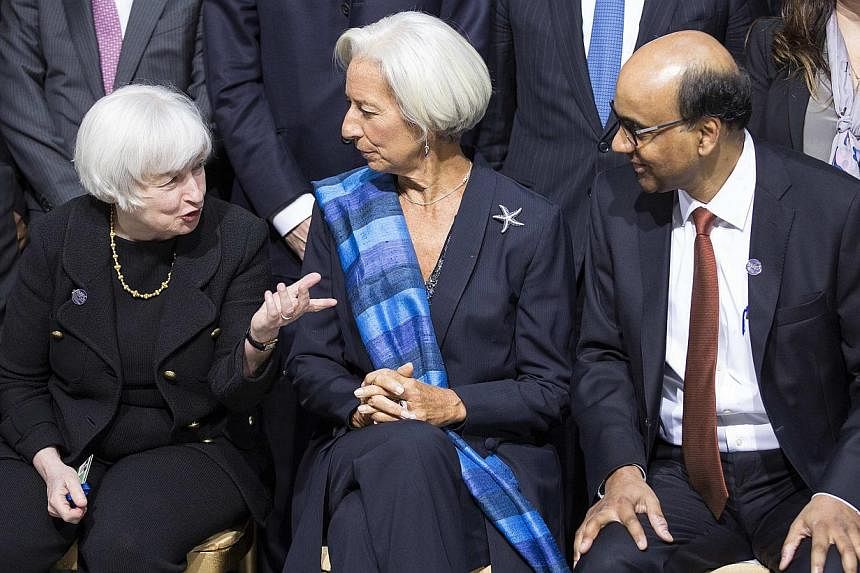WASHINGTON - A global economy still recovering from the financial crisis could get stuck in a prolonged period of sub-par growth, said Deputy Prime Minister Tharman Shanmugaratnam as he warned that such an environment would leave countries vulnerable to shocks.
Speaking at a press conference after chairing the 30th meeting of the International Monetary and Financial Committee (IMFC) - the policy setting body of the International Monetary Fund (IMF) - DPM Tharman said that the committee's primary concern was on how to the tackle long-term risks.
"The substance and spirit of our discussions was very much on focusing on tomorrow. In other words, focusing on the reforms needed to address the challenges of tomorrow," he said on Saturday in Washington.
"And if we don't do that, then we can't solve the problems of today. To solve today's growth problems, we have to lift potential growth. That means reforms that don't pay off immediately but reforms that build confidence over the medium to longer term... If we don't address tomorrow's growth problems today, we would be left with today's problems tomorrow."
It has been six years since the global financial crisis first rocked economies around the world and finance leaders at the International Monetary Fund-World Bank meetings this week have voiced concerns about the continued mediocre performance of the global economy.
DPM Tharman, who is also finance minister, outlined the problem in this way: "If we have low growth persisting over a long period we will always be vulnerable. Vulnerable to geopolitical risk because they will have that much more impact on growth, jobs, on confidence. We'd be vulnerable to biological pandemics and we would be vulnerable to financial Ebolas which are bound to happen."
A IMFC communique issued after the meeting also highlighted some downside risks in the short to medium term. These include the challenges associated with monetary normalisation in advanced economies and protracted below-target inflation.
As was the case at the last meeting in April, the IMFC also reiterated its concern that the US had yet to ratify the 2010 quota reforms crticial to funding the operation of the IMF.
It said that if the US fails to ratify the reforms by the end of the year, it would schedule a discussion on possible next steps.
IMF managing director Christine Lagarde, however, would not be drawn on what the plan B would be saying she did not want to "put the cart before the horse".
"There is work under way, we have received comforting statements on the part of US authorities that there is work going on and I'll leave at that at this point in time."

